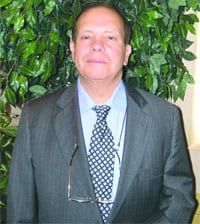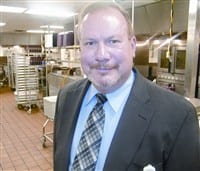Positive Reinforcement Paul Grunthart Looks on the Sunny Side
Usually the hospital visit follows the stroke, not the other way around.
But when Paul Grunthart woke up one morning three years ago with discomfort around his heart, on top of a history of heart problems and an angioplasty, he decided it was a good idea to see his doctor — who promptly sent him to the operating room for a triple bypass.
During the operation, a clot formed, and he had a stroke on the table.
“When I woke up the next day, I was given good news and bad news,” he said. “The good news was that the bypass was successful, and everyone expected a good recovery. The bad news was, the left side of my body was paralyzed.”
Recovery has been a slow process for the 67-year-old, but Grunthart — who works for the United Way in New Jersey — has always kept a positive outlook on his recovery.
“It’s a long and tedious road, and you make progress in tiny increments,” he said, “but when you look back six months, you realize, ‘my God, I couldn’t have done such-and-such a year ago. I still walk with a pronounced limp, and I have little mobility in my fingers. Those are the negative things. But I can drive, dress myself, and care for myself. I’m articulate, and I have my cognitive skills. And I’m back to work.”
As director of major gifts and trusts for the United Way — he commutes once a week, stays in New Jersey for a few days, then returns home to Longmeadow — Grunthart takes satisfaction in a job where he can help other people.
“I love what I do,” he said. “I’d probably pay them to let me work. But don’t tell them that.”
Locally, Grunthart has also worked as a consultant for charitable organizations, helping people with disabilities re-enter the workforce. As for his own partial disability, he won’t let it slow him down, working out at the gym three times a week to keep his recovery going.
“There’s an old saying, ‘use it or lose it,’” he said. “It’s especially true with a stroke victim. You have to rebuild the damaged muscles and retrain your brain, and you regain both those things by strict repetition, over and over again.
“It’s all about attitude,” he concluded. “After a major illness, that only becomes more evident.”



